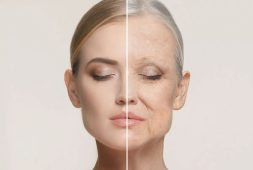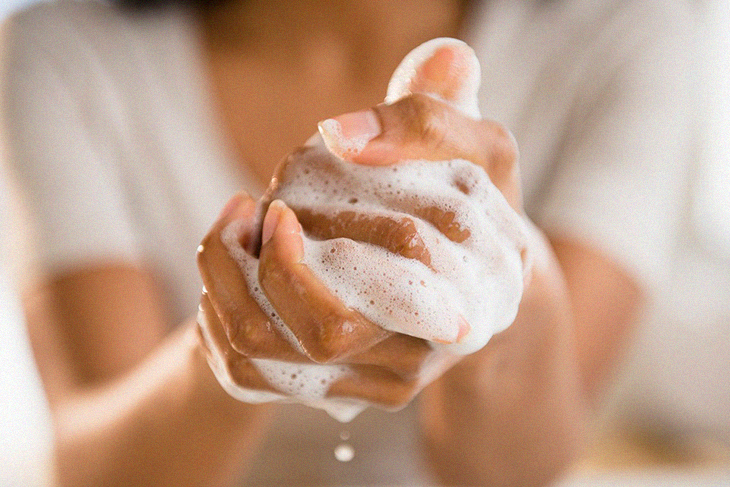
Whenever flu, cold and allergy season are fast approaching, doctors make sure to remind the public about the best ways to defend themselves against the common cold, as well as other sicknesses and diseases. And the best yet simplest defense is basically washing your hands.
It’s also important to note that how you wash your hands is incredibly important. A study done by Michigan State University had results that showed 5% of 3,749 people didn’t wash their hands long enough to actually kill the germs they pick up while using the bathroom. And even worse, 33% don’t even use soap while another 10% didn’t even bother to wash their hands at all. Even worse, according to some research from a 2018 study done by the U.S. Department of Agriculture, they don’t even bother to wash their hands properly 97% of the time.
Notably, a quick rinse hardly does anything to the millions of germs that can be found on your hands. Microbiologist and professor of food science at Rutgers University, Donald Schaffner, Ph.D. explains that your hands can have millions of pathogens on them, and just one tiny microorganism can make you sick. In fact, as yucky as it sounds, just one gram of poop can already hold one trillion germs. And the only way to remove them is to make sure that your hands get a thorough washing.
If you want to make sure that you’re doing it right, follow these easy guidelines to make sure that your hands are extra clean!
Here’s How To Properly Wash Your Hands
1. Wet Your Hands
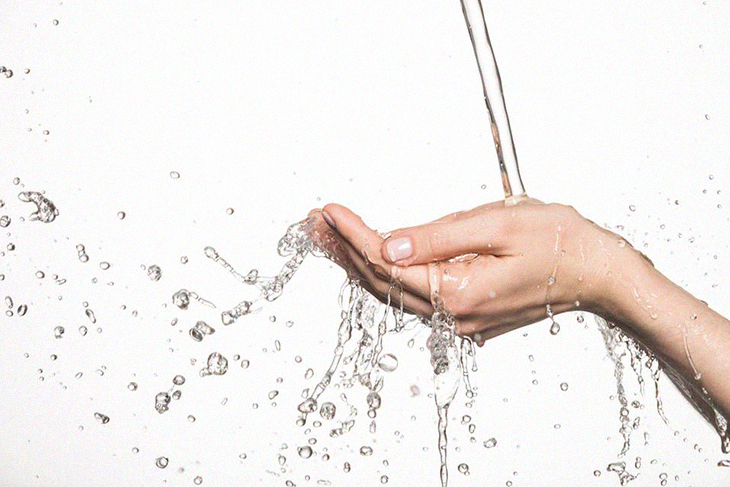
First things first, in order to properly wash your hands, you need to wet them in clean running water. Some also believe that they need to use hot water, but a hotter temp doesn’t necessarily work better. Dr. Schaffner explains, “There’s no difference in cleaning power whether the water is 60°F (that’s cold), 80°F (pretty comfortably warm), or 100°F.” If you can’t handle the heat, then just lower the temperature in order to keep your hands in the water for a longer period of time.
2. Lather Up Well
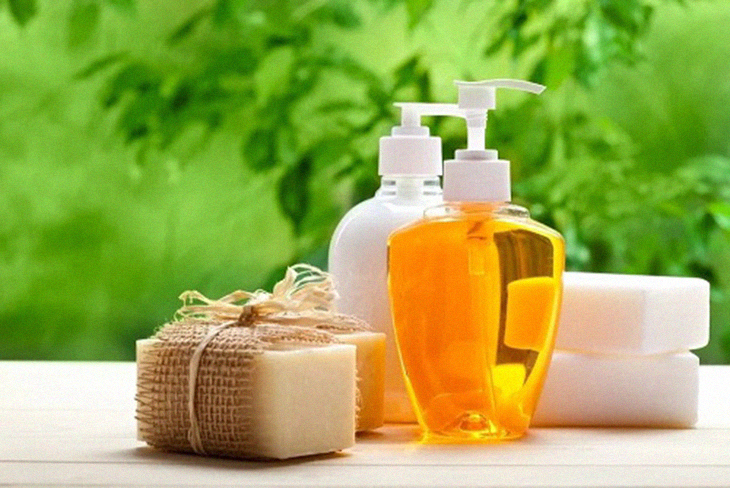
Washing your hands with only water is just not going to the trick! Soap is a necessity if you want to truly get the grime and germs off the top surface of your skin. The Centers for Disease Control and Prevention (CDC) explains that whether you use bar soap, liquid soap, or even foam soap, it doesn’t matter because they can all get the job done!
3. Scrub Your Hands
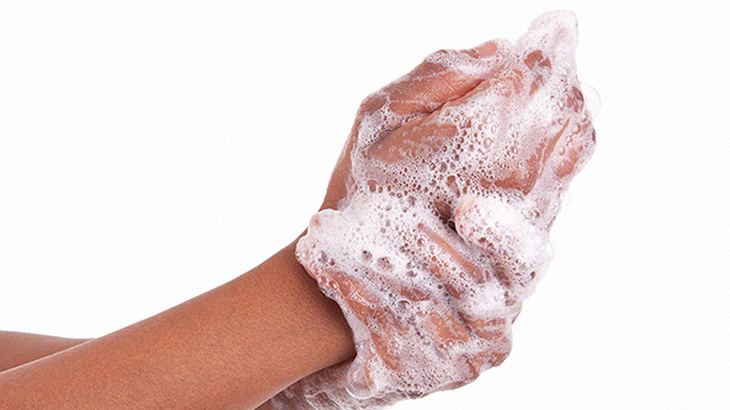
Although water temp and the type of soap you use depends on preference, what really matters is the amount of time you actually spend scrubbing your hands, says Dr. Schaffner. He did a study in his lab, testing the effectivity of washing depending on length of time spent washing. The test revealed that 20 seconds – or the same time it takes to sing “Happy Birthday” twice over – is way more effective in removing germs than anything shorter than that. So lather up for a good 20 seconds or more before thoroughly washing the soap all off.
4. Properly Dry Your Hands
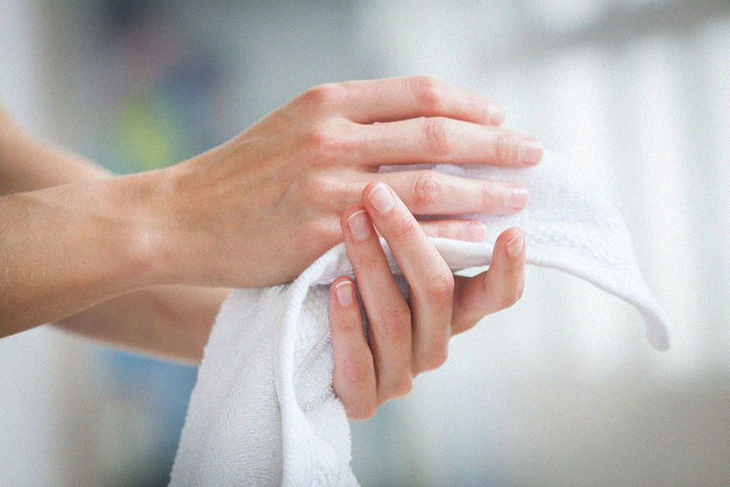
A study completed by UConn Health showed that when putting newly washed hands underneath a hand dryer for even just a minute, they are susceptible for new bacteria from the dryers. Dryers have the ability to suck in bacteria circulating around the bathroom, which can then find themselves on clean hands once again. Associate professor at the Yale University School of Medicine in the Department of Pediatrics, Section of Infectious Disease and coauthor of the study, Thomas Murray, M.D., Ph.D. said that despite the result of the study, there’s no need to freak out. He iterates, “The vast majority of bacteria are not likely to be harmful to someone with a working immune system.” But if there is a hand towel to use, this will always be a better option in the end.
Here Are The Situations Where You Should You Wash Your Hands
According to the CDC, there are particular situations where you should always follow proper hand washing. These include before, during and after preparing food, before and after caring for a sick person at home, before and after treating a cut or wound, and before eating anything. Proper hand washing should also be done after using the bathroom, after changing diapers, after handling pets and their food, after touching garbage and after blowing your nose, sneezing or coughing too.
Basically, if you feel like your hands are dirty, regardless of what you were doing or where you came from – like say the grocery or the park – there’s no harm in giving your hands a good washing. In fact, your body will thank you for it!
What’s More Effective? Hand Soap vs. Hand Sanitizer
When your hands are visibly dirty, nothing will do the work better at getting the grime off than soap and water, precisely because the rubbing and rinsing action is best at getting viruses and bacteria off their hands. The problem with hand sanitizer is dirt can actually be a barrier. Epidemiologist with the Waterborne Disease Prevention Branch of the CDC, David Berendes, Ph.D. explained, “Hand sanitizers must contact germs to damage and kill them.”
But, when it’s the only thing you have to use when your hands are dirty (but not filthy), then 60% alcohol-based sanitizer can be good enough when you don’t have any other choice. Just make sure that you get every surface of your hands – palms up and palms down – and rub until dry. And no matter how icky it may feel and no matter how tempted you may be, don’t wipe it off either.


